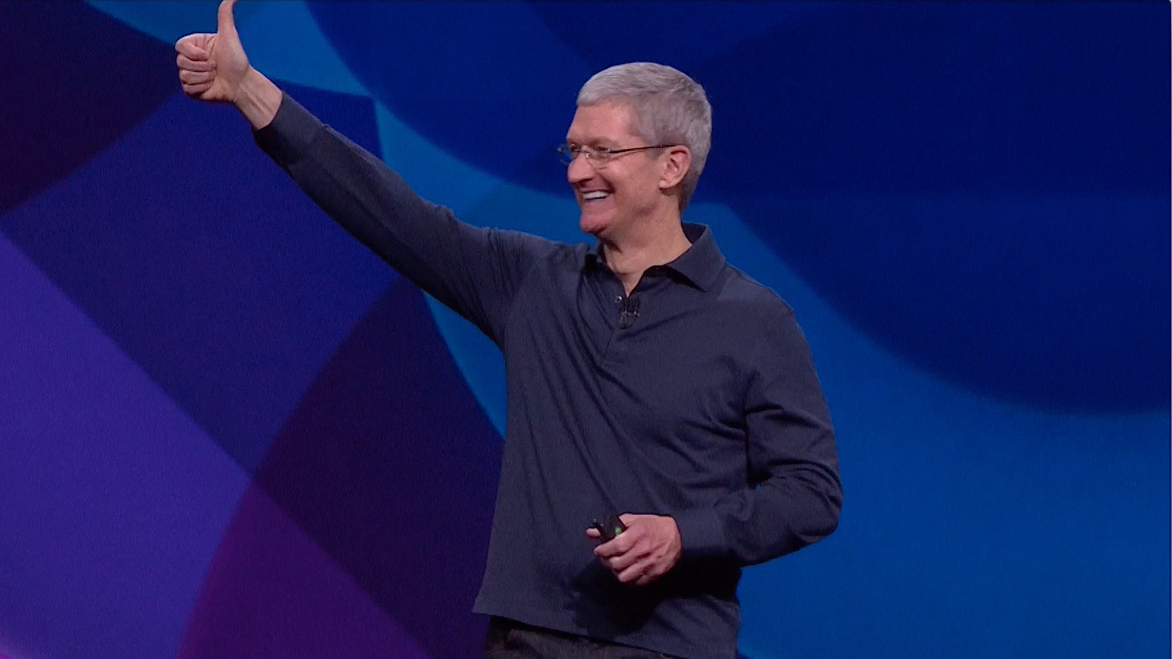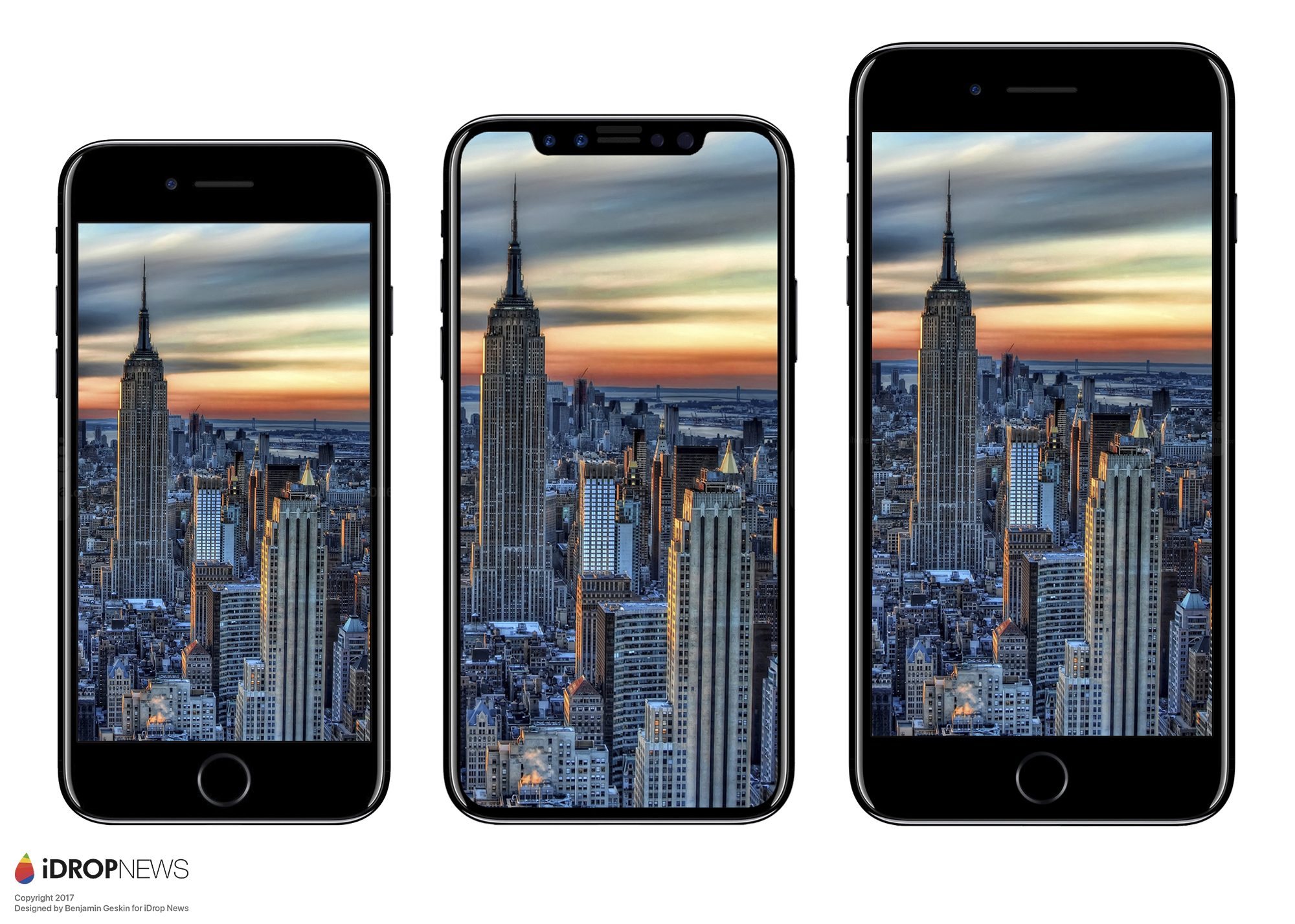Why the iPhone 8 will be one of the most exciting phones of the decade
It's about time

Yes, the iPhone 8 will be worth waiting for. Yes, it will be very expensive.
This feels like all I’ve been saying to my friends, family and anyone who hears what I do for a living at the moment.
I’m used to getting asked about the upcoming iPhone every year, as it’s the phone that people who don’t really care about smartphones are interested in. They get an iPhone because they believe in Cook’s mantra of ‘it just works’.
They don’t care about the screen resolution, the RAM inside or the memory expansion options. They just want a reliable phone in their pocket, and the iPhone is the one their partner / friend at work / that IT guy that used to work at their company has, so it’s good enough for them.
And, for the first time in years, I’m actually a little bit excited about an iPhone launch. The ‘S’ variants of each iPhone have been underwhelming, but with the iPhone 7 it got worse.
- iPhone 8 release date and price: everything you need to know
We essentially got an iPhone 6SS, a waterproof version of the 6S shorn of a headphone jack but – and this part is crucial – visually the same device. Losing the headphone port irked many, and some people are still confused as to whether they can only use Apple’s Airpods with the phone (it’s okay, you’re not limited to just those).
Speaking to possible upgraders, I’m hearing far more that people are looking to keep hold of their older iPhones, as the new version simply isn’t offering them enough of a change over the iPhone 6 they bought three years ago.
Sign up for breaking news, reviews, opinion, top tech deals, and more.
The iPhone 7 has been a tougher sell for retailers too it seems. Dixons Carphone (one of the UK’s biggest phone retailers) called out the poorer than expected retail performance of the new iPhone 7 as a factor when delivering profit warnings recently.
Apple needs something new and exciting to re-engage with its users – and it looks like that’s exactly what’s coming.
A new chapter
Looking at our iPhone 8 rumors round-up it’s clear that the new phone is going to be a step-change for the brand, and it’s been refreshing, when asked "Is the new iPhone going to be any good?", to not have to take a breath and preface my answer with "Well...".
Because the iPhone 8 is going to be more than good – it’ll be the best iPhone ever made by a long, long way, and it’s been great to be able to outline the rumors on the screen changes, the design, the camera upgrades… everything that people have been looking for.
However, the question that inevitably follows "Is it going to be any good?" is: "Okay… but is it going to be expensive?" And that’s when the familiar intake of breath is needed, because yes – all the information we're seeing points very strongly to a hike in the cost of the new iPhone.
You know the price of the new iPhone is going to be a big talking point when you’re getting messages from friends’ mothers asking if the new handset is really going to be that expensive.
How to solve a problem like an iPhone score?
Which brings us to the big question – and it’s one I’ve wrestled with for years: How much should people be willing to pay for an Apple-made phone? Is the new iPhone going to be too expensive?
The short answer to that second question is: no. The longer answer is: yes, it’s going to be expensive by the standards of general consumer electronics – but there’s a level of acceptance of a higher price by iPhone users that. historically, has never applied to any other smartphone brand.
Reducing an iPhone to a list of numbers misses a lot of what happens behind the scenes in development
When I was a fresh-faced technology writer a decade ago, I derided the iPhone for being more about fashion that function, with the cost making it easy to mark down against its better-specified rivals.
I stuck to that line while the iPhone grew in popularity year after year, pointing to better options that offered the same smartphone prowess for a lot less. Yes, the iPhone worked well, but the gap in cost between it and its rivals was often so vast that it was impossible to justify empirically.
But in the last couple of years there’s been a quiet but dramatic shift in the smartphone market. We’re topping out in terms of what we can actually expect these manufacturers to shove into their phones to make them 'new', and more attractive than last year’s model.
I mean, there will always be people out there who want a phone that’s got 6GB or 8GB of RAM in it, but I could spend months trying to find someone who's made use of all that power meaningfully.
The bigger change is that, in recent years, Apple’s rivals have stopped using price as a differentiator, and started to charge a comparable amount for their flagship handsets, levelling the playing field.
Yes, competitor devices have more power, longer-lasting batteries and (slightly) better cameras, but that misses the point of what the mainstream smartphone buyer wants: a phone that just works.
The only thing that’s really impressed me in the last year is the Samsung Galaxy S8’s bezel-less Infinity Display (and, to a degree, the same thing on the LG G6 and Essential Phone), because they make the phone actually look different – and upgraders need that to enjoy a purchase from the outset.
The waiting game
Apple is doing the same thing after years of holding onto the same design, and it’s going to be a massive overhaul. So, given that people have been happy to pay higher prices for an iPhone in the past over other phones, and that Apple is genuinely upgrading its new handset… how much is too much?
The pragmatist in me will point to a number of phones that can do the same things you can achieve on an iPhone for far less money.

But year after year, Apple has charged a higher premium than its rivals without winning the spec war, and it remains the most popular model of phone.
It’s not a fair price in a vacuum. Yes, the screens are low-resolution compared to the competition… except, we’re pretty much at the limit of what’s worth putting in a smartphone right now. Samsung downgrades the resolution of its phones out of the box, proving that most people don’t need QHD screens.
People want phones that do what they’re supposed to, and look good doing it – and they’re prepared to pay for that, so indispensable have smartphones become.
To hark back to the same phrase: iPhones just work because of myriad little things, like instant reactions to your touch and dependable app performance (and often improved functionality over the Play Store rivals). Things do what you expect them to.
But before this starts to sound too much like an iPhone love-in, it’s not. It’s me trying to explain that reducing an iPhone to a list of numbers misses a lot of what happens behind the scenes in development.
It’s like choosing an Honor 9 or OnePlus 5 over a Samsung Galaxy S8. On paper, they’re not that different, and certainly not different enough to justify the price differential on the face of it. But, while you’re saving a lot of money, you’re not getting the battery optimization, the screen calibration… all the invisible tweaks that make a good smartphone great, and which cost money to produce.
The iPhone probably won’t be flawless. It’s unlikely that battery life will be improved, and the augmented reality (AR) stuff will be a tough sell no matter how much pizzazz Tim Cook and friends bring to the announcement ; it’s fun, but it’s not going to be a must-have phone feature in 2017.
The iPhone 8 won't sell in the same volumes as previous iPhones, simply because it'll cost more and some people won't be able to afford it, no matter how much they want it – that's why there will also be the more affordable iPhone 7S.
But – in terms of whether the new iPhone 8 will be worth the money – it’ll be enough of a design change to rekindle the same feelings the early iPhones inspired: technology and fashion fusing together, form meeting function in a way that just works for people who have no interest in CPUs, flash memory or sensor depth perception.
And that’s why – whether you buy into the iPhone dream or not – Apple is going to deliver one of the most exciting smartphones of the decade.

Gareth has been part of the consumer technology world in a career spanning three decades. He started life as a staff writer on the fledgling TechRadar, and has grew with the site (primarily as phones, tablets and wearables editor) until becoming Global Editor in Chief in 2018. Gareth has written over 4,000 articles for TechRadar, has contributed expert insight to a number of other publications, chaired panels on zeitgeist technologies, presented at the Gadget Show Live as well as representing the brand on TV and radio for multiple channels including Sky, BBC, ITV and Al-Jazeera. Passionate about fitness, he can bore anyone rigid about stress management, sleep tracking, heart rate variance as well as bemoaning something about the latest iPhone, Galaxy or OLED TV.